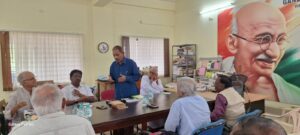18 December 2012
Preamble
“Sanctions and embargos directly affect Religious Freedom and other human rights. In December we learned that the United States’ economic blockade against Cuba has forced the postponement of the 6th General Assembly of the Latin American Council of Churches (CLAI), scheduled for 19 to 24 February 2013 in Havana, Cuba. (as reported 14 Dec 2012 <http://www.ekklesia.co.uk/node/17614>).
The American branch of the Ecuadorian bank Pichincha in Miami froze a deposit of 101,000 US dollars made by the CLAI headquarters in Quito, Ecuador. The transfer to Cuba was to cover costs of food and lodging for the 400 delegates and other participants expected to attend the meeting in that nation.
“This is greatly disappointing to the member churches of CLAI and to the entire constituency of the World Council of Churches (WCC),” the Rev Dr Olav Fykse Tveit said on Thursday 13 December 2012, after learning of the decision by CLAI to postpone the assembly.
“This shows that the decades old economic blockade of Cuba is out of touch with the realities in the world today, particularly in the faith-based communities, and should be ended for the sake of justice and peace,” Dr Tveit added.
The social effect of sanctions upon civilian populations historically may be seen in the shift of Cuban policy from left-wing nationalism to austere communism, the birth of the Russian Mafia in the black markets of the former Soviet Union and the growth of terrorist organizations in Palestine, Iraq and Syria. The current situation in Iran for people with long- term illnesses has recently been highlighted. International banks refuse to process payments for medicines because they fear incurring penalties for sanction-breaking.
Resolution
The British Chapter of the IARF questions the morality and long-term effectiveness of the indiscriminate use of sanctions, embargoes and blockades as ‘peaceful’ proxies for direct military action in pursuance of political, territorial or commercial aims or for collective punishment. Such actions inflict real and unjust harms upon the most vulnerable members of targeted nations. They often become an obstacle to the peaceful resolution of disputes. Sanctions and embargoes may in times of peace appear to be a less reprehensible response to ‘provocations’ than overt military action. However, this is only true if their consequences upon the human rights of the powerless are fully considered. They may directly and indirectly cause widespread personal injury and loss of life. This entrenches divided opinion, encourages violent response, and presents an obstacle to genuine meaningful negotiations.
We therefore urge states and nations enforcing or responding to sanctions, to act humanely, proportionately and moderately, to accept the responsibility to avoid or limit the harms caused by their actions, and to respect the Human Rights of vulnerable civilian populations.”
Rev. Dr. Richard Boeke, Chair, British Chapter IARF
Rev Chris Hudson MBE, Vice-Chair
Rev Feargus O’Connor, Secretary
With contributions by Shaykh Muhammad Amin Evans, Charanjit Singh, and Derek McAuley





